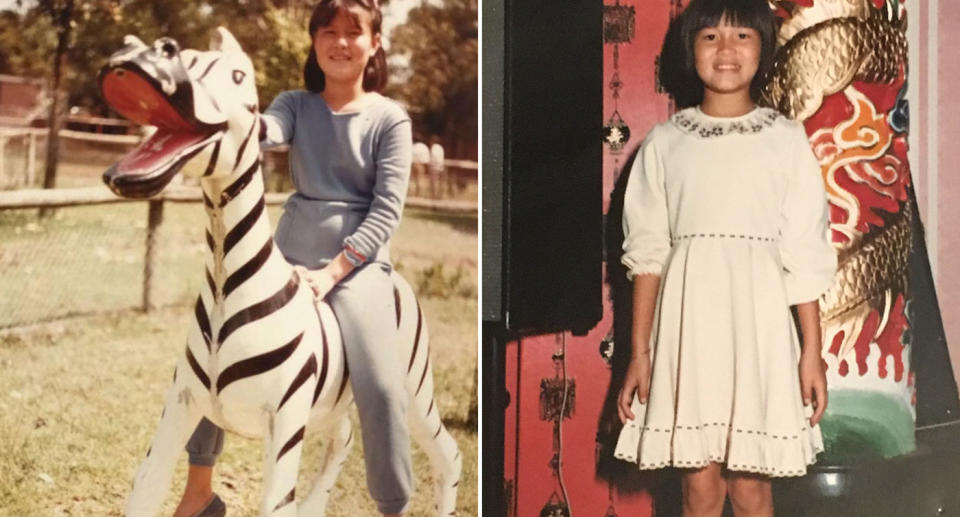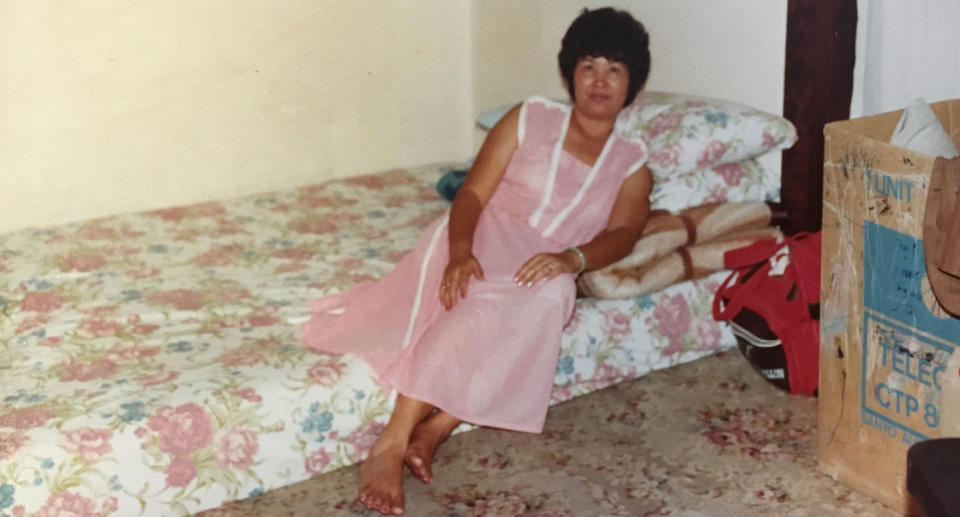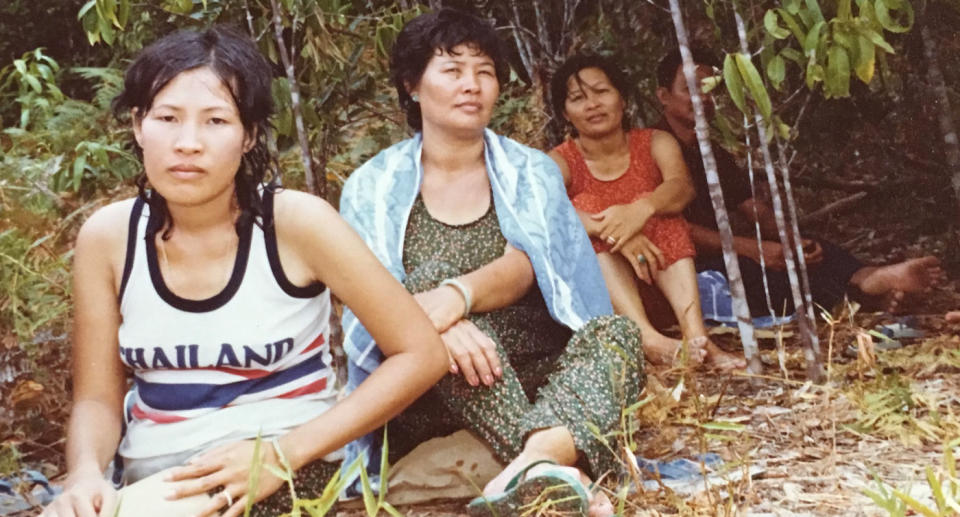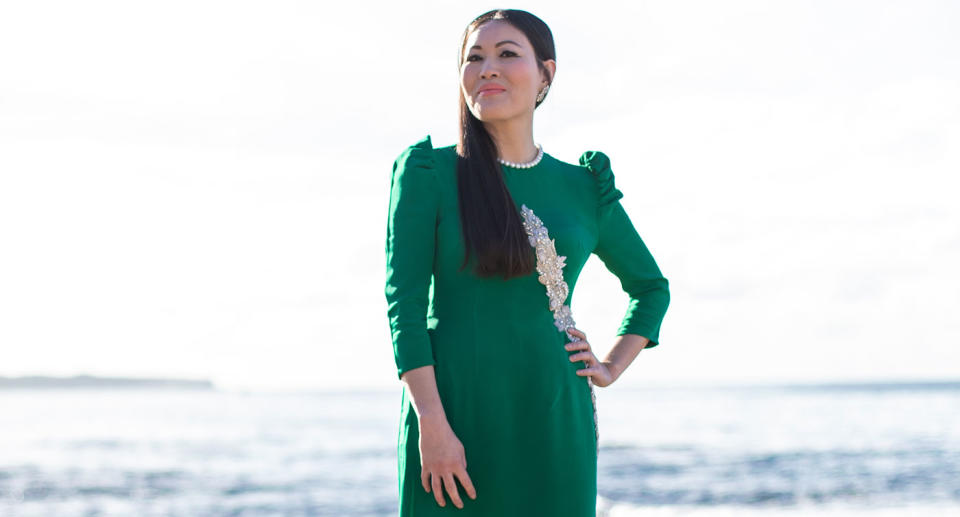Woman's inspiring journey from surviving pirate attack as a refugee to business success
One of Diem Fuggersberger most vivid childhood memories is hiding under a table in terror while pirates stormed the refugee boat she was on while fleeing a war-torn country.
The successful Sydney entrepreneur was just seven when she left Vietnam with 14 members of her family in 1979.
They were travelling on a 25-metre long boat, called 0010, with 500 other refugees on the long and perilous journey to Australia.
They family paid a total of 45 gold nuggets to the ship’s captain for the three-day voyage.
Ms Fuggersberger, like many Vietnamese refugees, fled her home following the end of the Vietnam War. She had relatives already settled in Australia and her family hoped to join them.

But not long into the harrowing trip the boat was boarded by gun-toting pirates who threatened to throw people overboard.
“Their boat was side by side with ours, and they took two of my cousins, both girls aged 17 and 19, with the intention to rape them,” Ms Fuggersberger said.
Ms Fuggersberger said her mother had prepared her and her two sisters in the event they ran into pirates by giving them short haircuts so they would look like boys so the pirates wouldn’t recognise them as female and try to rape them.
“I was scared but calm and tried to remain quiet,” she said.
“I hid under a table just listening to what the pirates were saying. Back then, lots of older men had gold teeth. One of the men on board had them and the pirates said they were going to pull his teeth out.”

Luckily, the pirates had to flee the boat to escape an approaching storm. The armed men ended up taking off with about 1500 gold nuggets from the ship’s captain, and what little possessions the refugees had left.
Thankfully, Ms Fuggerberger’s two teenage cousins were released.
The refugees on board then prayed for their survival for two hours as the 0010 nearly capsized in the fierce storm.
Their prayers were answered as a ship, named the Bologna, came to their rescue and transported all the refugees to Galung Island, Indonesia for offshore processing where they would be tested for malaria and other diseases.
The family were forced to share a home with five other families separated by just curtains. Red Cross gave them cans of Spam, dried fruit and sardines – three foods she won’t touch today.

Such was the desperation for families to get into Australia, the Vietnamese woman witnessed one man take his own life. He had epilepsy and was concerned his family wouldn’t be allowed into the country.
It wasn’t until 1980 Ms Fuggersberger and her family left the camp and arrived at Broadmeadows south of Sydney.
Adjusting to a new life in Australia
The family stayed for one month in the camp before settling in a house in Punchbowl, and Ms Fuggersberger said it was hard to adapt.
“There was new culture and new food,” she said. “And learning a new language.”
By this time Ms Fuggersberger was aged eight, but had only had one year of schooling.
It took her six months to “learn bits and pieces” of English, she said, while also suffering bullying and racism.
As a teen, she worked seven days a week earning $15 at her mum’s restaurant, Bac Lieu, in Marrickville.

“It taught me how to work hard, and in a way how to be a perfectionist,” she said.
“I had to waitress, clean toilets and manage money. I also had to make food. Mum would give me three days to make 1800 spring rolls. They had to be the exact same size and tightness.”
Business woes and a new start
In 2009, now a mother-of-two and working two days a week at her husband’s business, Quality Foods, she experienced more hardship.
The Global Financial Crisis, coupled with what Ms Fuggersberger put down to poor business management and issues with invoices unpaid by clients, left the family $900,000 in debt.
Everything you need to know about the blood moon rising this weekend
How woman lied to police as she tried to get away with murder
With her knowledge and passion for food gained from working for her mother, Ms Fuggersberger started her own business: Berger Ingredients – making seasoning and food flavourings for meat, smallgoods and ready-made children’s meals.
The couple earned $22,500 each a year and paid off their debts.
She later expanded – and started Coco and Lucas’ Kitchen, which now features in more than 900 Woolworths stores country-wide.
A migrant’s gratitude
Ms Fuggersberger says it’s important for her to give something back to the homeland which took her family in at their most desperate hour.
“My business is Australian owned and manufactured, uses local Australian ingredients and employs only Australian residents,” she said.
“I don’t import any ingredients and only export my products. I feel like I owe the country a debt of gratitude.
“These hardships have made me the person that I am today – passionate about my work and giving back to Australia in any way I can.”

And she’s not alone in that goal, a report from international money transfer service TransferWise revealed migrants are forecast to contribute $1.6 trillion to Australia’s GDP by 2050, adding 5.9 per cent in GDP per capita.
Findings by The Treasury and Department of Home Affairs revealed recent migrants accounted for two-thirds (64.5 per cent) of the approximately 850,000 net jobs created over the past five years.
For full-time employment, the impact is even more pronounced, with recent migrants accounting for 72.4 per cent of new jobs created.
Ms Fuggersberger said her experiences have taught her a lot. She regrets nothing, but it’s also important for people to remember that refugees don’t leave their country because they want to.
“No one ever wants to leave their home,” she said.
“There’s sometimes no choice but to find a better living.”



